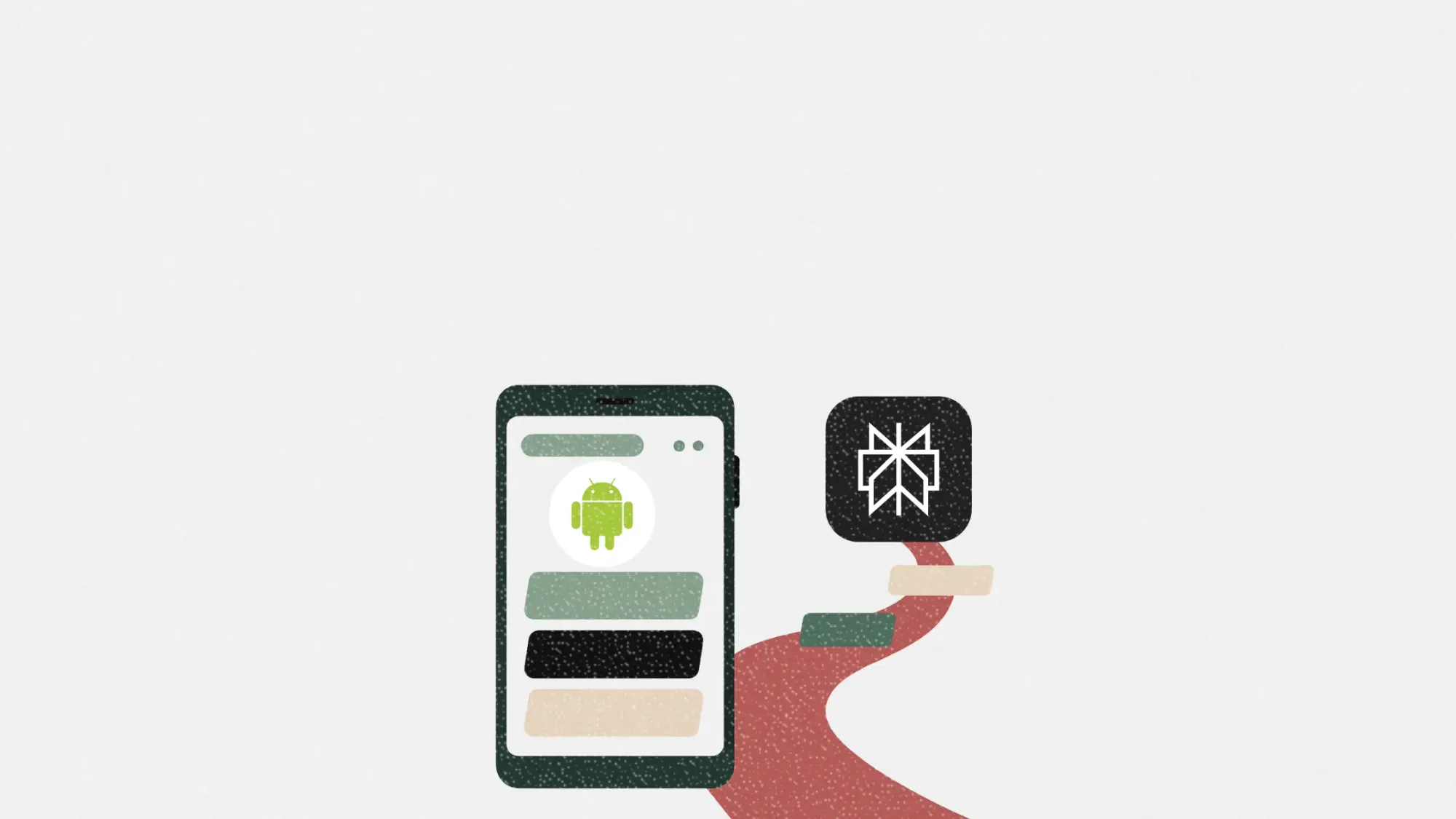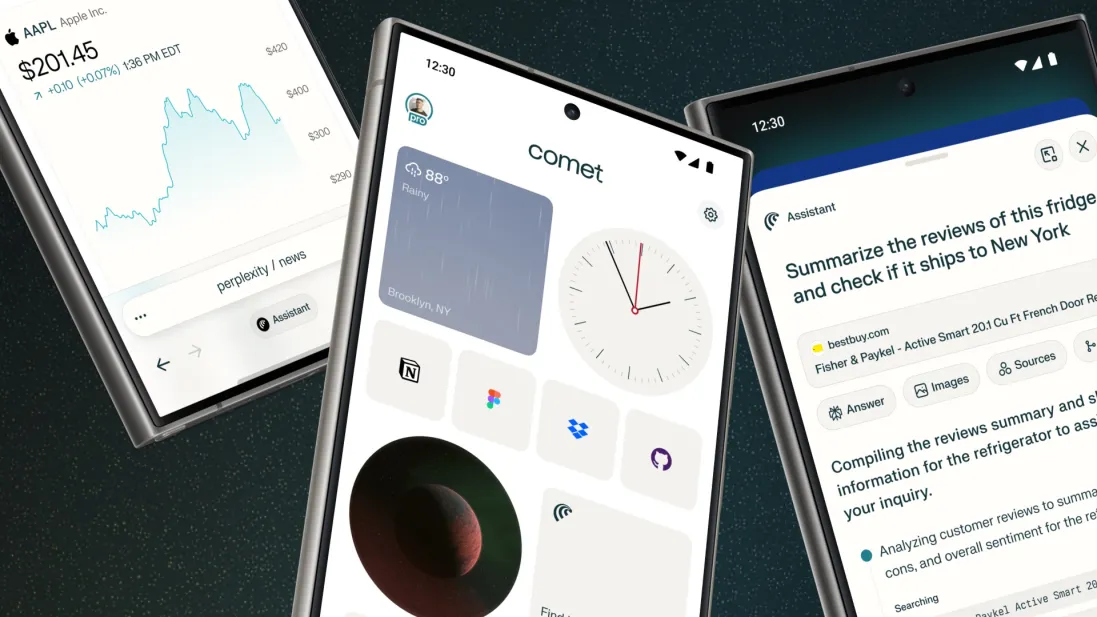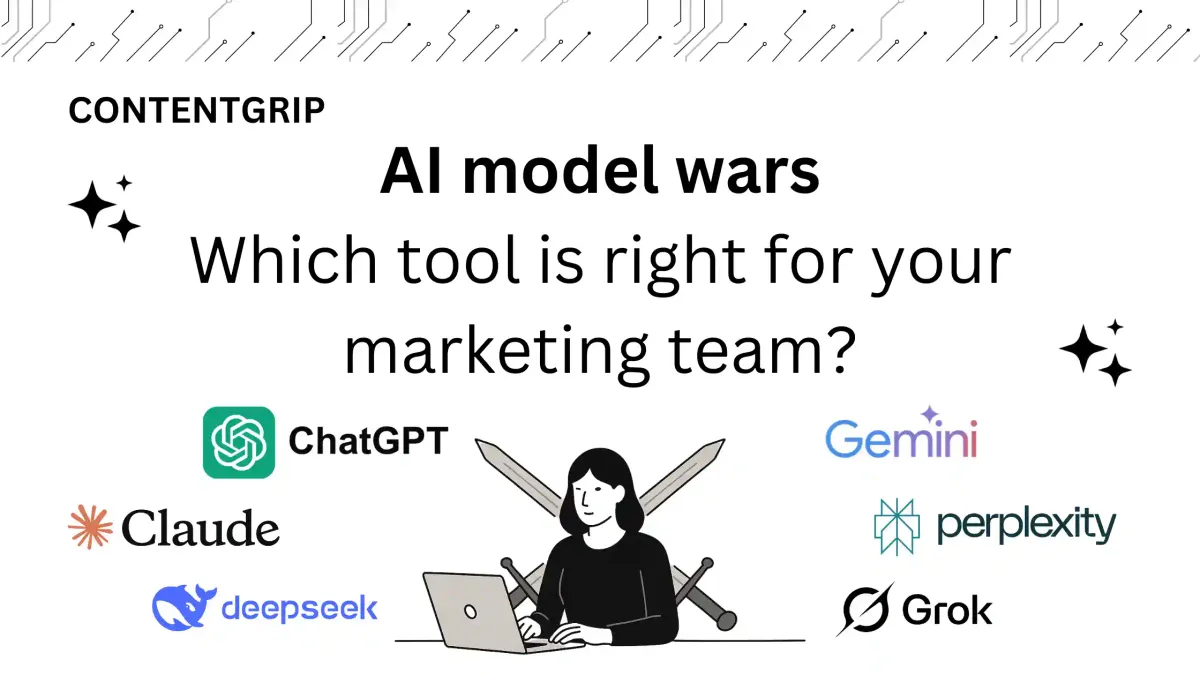Perplexity brings its AI browser Comet to Android
Comet’s mobile debut makes Perplexity a serious contender in the AI search race. Here’s what it means for marketers

Perplexity, the fast-growing AI search startup, has brought its Comet browser to Android. The launch marks a significant step in the company’s expansion strategy, aiming to reimagine how people browse, search, and shop online using AI.
After debuting Comet on desktop earlier this year, Perplexity is now delivering many of those same assistant-driven capabilities to mobile. With voice commands, cross-tab search summaries, and AI-powered shopping features, Comet is positioning itself as a mobile-native competitor to traditional browsers like Chrome or Safari.
This article explores what Comet’s Android release means for marketers and how it could impact digital discovery, search behavior, and branded content visibility.
Short on time?
Here is a table of content for quick access:

What's new in Comet for Android
Perplexity says the Android version brings most of the desktop experience to mobile, including:
- Voice mode to ask questions across open tabs
- Assistant summaries that extract insights from multiple tabs
- Shopping and research tasks performed by the assistant
- Full visibility into what actions the AI is taking on your behalf
- A built-in ad blocker

Users can also set Perplexity as their default search engine and ask questions using tab references. These features build on Perplexity’s broader mission to offer real-time, AI-enhanced search instead of keyword-driven results.
While there’s no launch date for iOS yet, Perplexity confirmed the platform is in the works. Android was prioritized due to high demand from carriers and OEMs, although no formal distribution partnerships were announced beyond a previous preload deal with Motorola.
Why this matters in the AI browser race
Comet enters a growing field of AI-centric browsers aiming to disrupt how users search and interact with the web. OpenAI, Opera, and The Browser Company (now owned by Atlassian) are all in the mix, but most of their products remain desktop-bound. Comet’s mobile-first approach may give Perplexity a strategic edge. As AI-centric browsers increasingly shape how users access and interact with online services, an IP lookup can help clarify how requests are routed at a basic network level.
The company is also experimenting with agent-like functionality. Earlier this month, Perplexity upgraded its desktop assistant to handle longer tasks like transferring website data into spreadsheets. That points to a broader shift toward autonomous agents that can execute user commands. Upcoming Android features will reportedly include:
- Site-wide conversational agents
- Assistant shortcuts
- A built-in password manager
This pushes Comet beyond passive browsing into the territory of active, AI-driven task execution.
What marketers should know
Marketers and brand strategists should keep an eye on Comet’s rise, particularly for three key reasons.
1. Mobile AI search is gaining traction
Mobile remains the dominant platform for global web access. As Comet brings AI-native browsing to Android, it opens new pathways for discovery that may not rely on traditional SEO signals or ranking algorithms. Brands need to consider how AI tools interpret and summarize their content across tabs and sources.
2. Shopping via browser agents could reshape user journeys
If Comet’s assistant can research and shop on a user’s behalf, it reduces friction but also disrupts how consumers engage with brand content. Marketers should monitor how product pages, reviews, and pricing data are being surfaced or summarized by agents, especially as voice becomes a primary interface.
3. Ad blockers and AI mean harder-to-track audiences
With Comet’s built-in ad blocker and AI-generated summaries, traditional display ads may see reduced visibility. This could push marketers to rethink how they surface branded content in AI-aggregated environments and increase their investment in contextual, high-quality web experiences.

Perplexity’s Android launch is more than just a mobile expansion. It signals a future where AI assistants do not just help users search. They take actions, summarize content, and even shop on behalf of the user. As these browsers evolve into task-driven agents, marketers will need to rethink how their content gets found, interpreted, and acted upon.
Comet may not replace Chrome or Safari anytime soon, but it is a clear sign that the AI browser wave is moving fast and going mobile.





